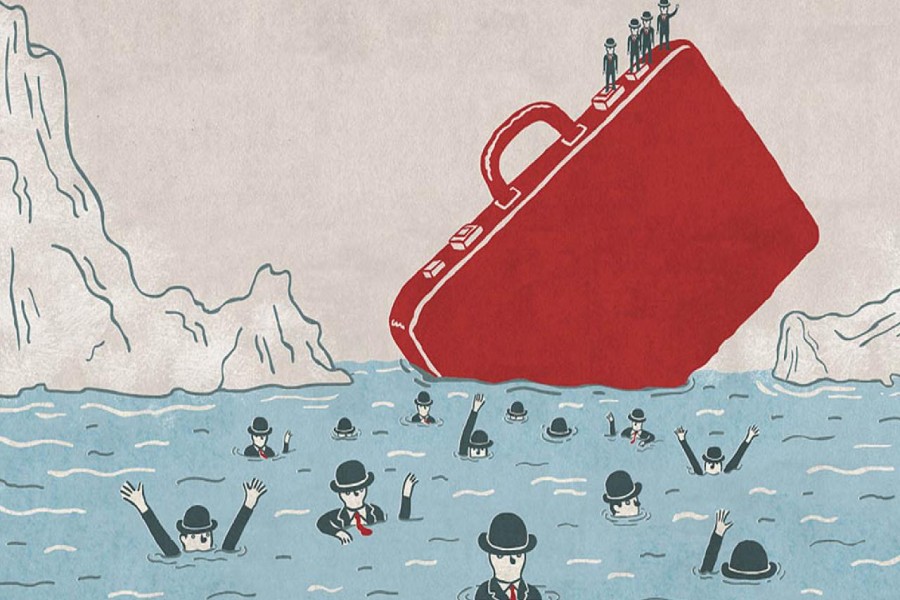Loss of both working hours and income has been the greatest fallout of the pandemic in the economic sector globally but it has been far acuter in the low-income countries including Bangladesh. The latest estimates in the seventh edition of the 'ILO Monitor: Covid-19 and The World of Work' released Monday warn how the road to recovery for this group of countries will prove daunting unless a timely recipe is adopted for each individual country depending on its ability to respond effectively. These countries will also need international support to tide over their constraints for vaccination in particular. Why working hour and income losses are more than the global average in these countries has not been detailed but it seems the reasons are not far to seek. Factories and industries as also the service sector in such countries, barring a handful, are yet to get standardised. Also more people are employed in the informal sector than in the formal sector. With limited capacity to absorb external shocks, the manufacturing and service sectors have few options other than terminating their employees.
The fact that lower-middle-income countries experienced 11.30 per cent loss of working hours as against the global average of 8.80 per cent in 2020 testifies to a weak manufacturing base and uneven and limited consumption pattern in society. The majority of population in such countries are mostly dependent on their daily wages or limited income for survival. When a pandemic strikes forcing closure of work avenues, they have hardly any savings to fall back upon. They are compelled to limit their expenditure to the minimum possible for mere survival. Individual families of this category may have had a meagre influence on the retail market but their huge number counts collectively and the market feels the bite. The important question here concerns living standard of the majority, which evidently is low.
To keep with the trend of highest working hour loss at 29 per cent in the second quarter, income erosion also registered a 12.30 per cent loss in 2020 as against 8.30 per cent in 2019. This is not unusual in times of economic crises. Both employers and wage earners could not but agree ona cut on the wages at a time when their co-workers were retrenched. This also explains why demand for goods ---non-essentials in particular ---fell and many small entrepreneurs went broke. Even government stimulus packages cannot keep these kinds of manufacturing units afloat as there are hardly any buyers for their products.
All this points to a simple conclusion that without raising the living standard of the common people, no country can fight a crisis like the coronavirus pandemic. Even rich countries with enough capacity for shock absorption totter because of yawning socio-economic disparities. So, there is a need for bridging this gap within a country and between and among countries. Poor countries with little means to carry out a vaccination programme must be helped on an emergency basis. This will be the number one prescription for not only those countries' turnaround but also for a speedy recovery of global economy. In this global village, no one can be left out in order to advance prosperity in a selfish manner. This is perhaps the greatest lesson from this pandemic.


